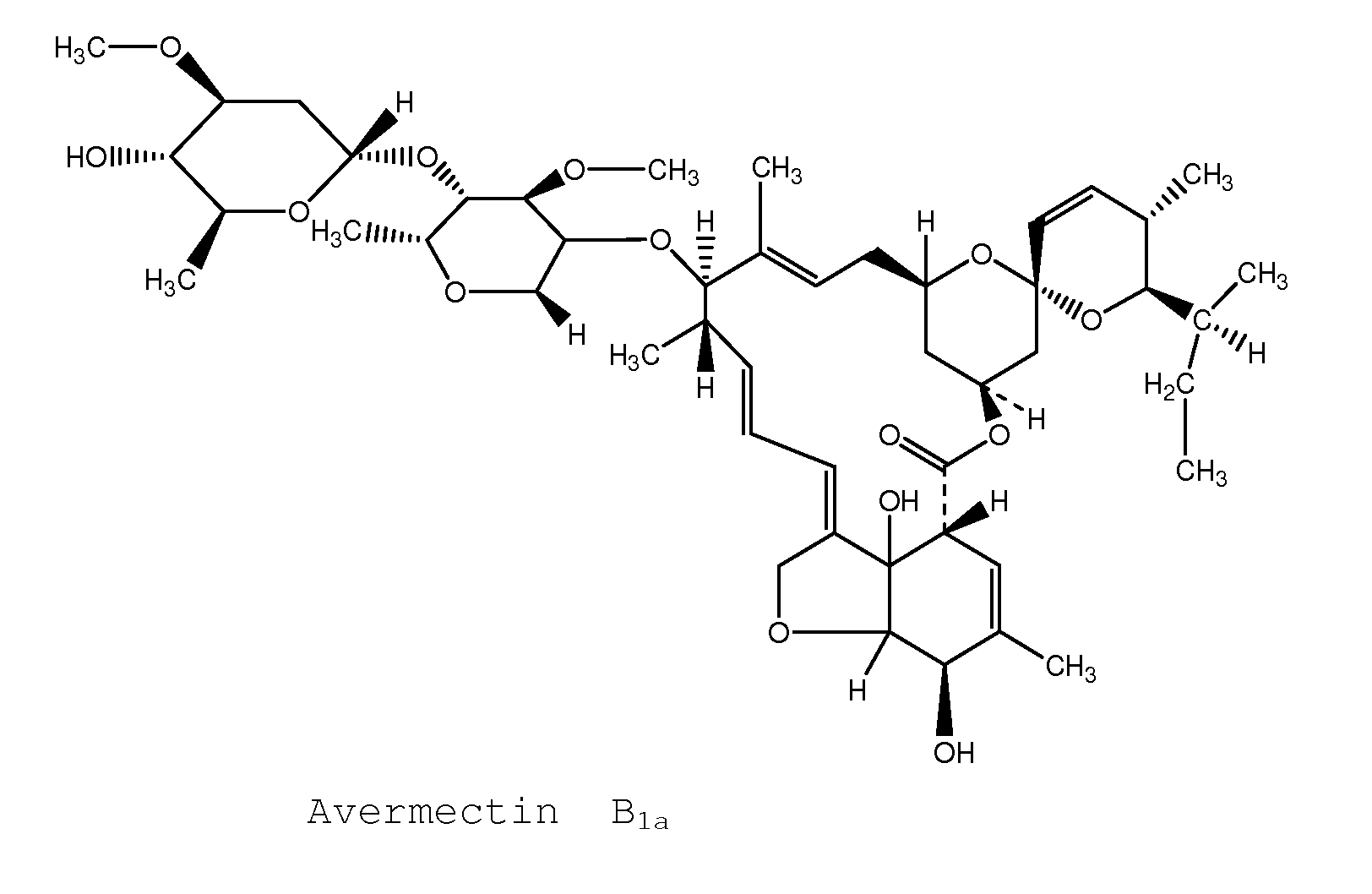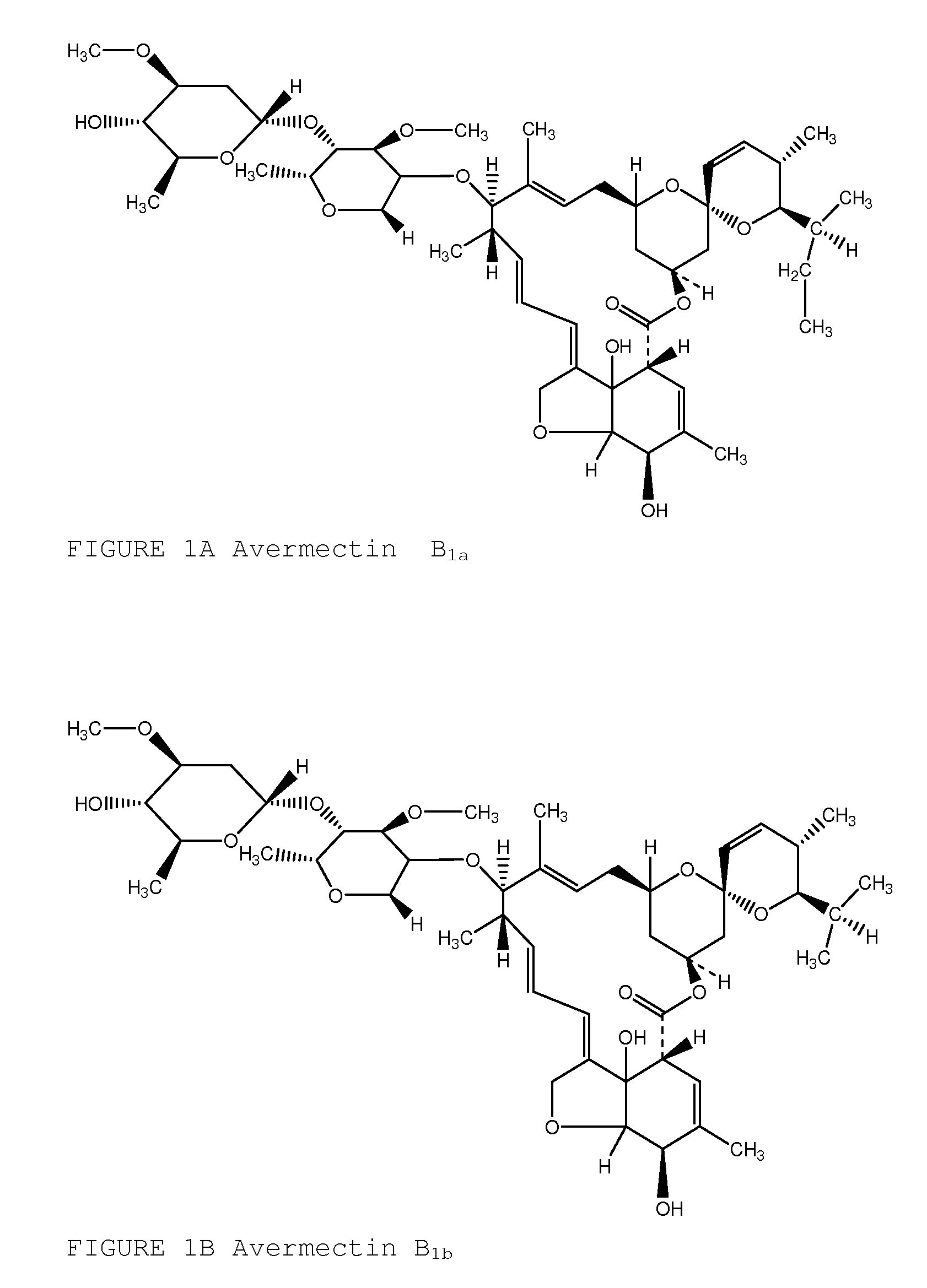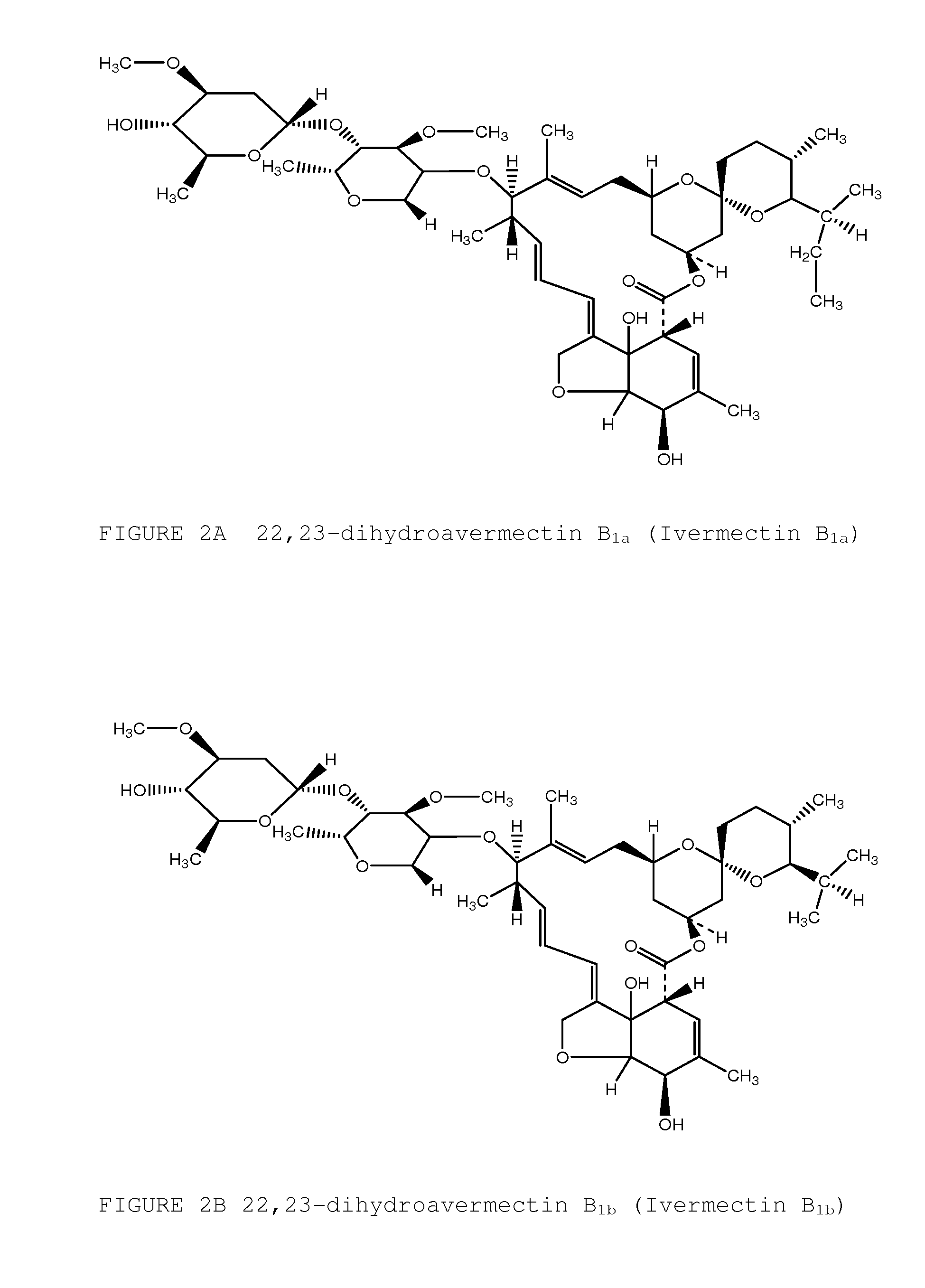Topical avermectin formulations and methods for elimination and prophylaxis of susceptible and treatment-resistant strains of head lice
- Summary
- Abstract
- Description
- Claims
- Application Information
AI Technical Summary
Benefits of technology
Problems solved by technology
Method used
Image
Examples
example 1
Formulation and Testing of Ivermectin Shampoo-Conditioner on Permethrin Resistant Head Lice
[0098]Having described the invention in general terms, the following specific example is offered for purposes of illustration and for illustration only, and no intention to limit the invention is to be inferred therefrom. A pediculicide containing ivermectin as a topical shampoo-conditioner for eliminating treatment resistant lice may be prepared as follows.
[0099]Preparing the Formulation
[0100]The formulation shown in Table 1 may be made by the following non-limiting example. The 0.50% w / v of the active ingredient (ivermectin) is pre-dissolved in a vessel containing surfactants, hereinafter Phase A, consisting of 11.75% w / v of polysorbate 80, 3% w / v of cetyl acetate, and 0.25% w / v of acetylated lanolin alcohol. Phase A is heated, with mixing, at a constant temperature of 65° C. until the active ingredient is completely dissolved in the surfactants. Phase A is then transferred into a vessel con...
PUM
| Property | Measurement | Unit |
|---|---|---|
| Time | aaaaa | aaaaa |
| Fraction | aaaaa | aaaaa |
| Fraction | aaaaa | aaaaa |
Abstract
Description
Claims
Application Information
 Login to View More
Login to View More - R&D
- Intellectual Property
- Life Sciences
- Materials
- Tech Scout
- Unparalleled Data Quality
- Higher Quality Content
- 60% Fewer Hallucinations
Browse by: Latest US Patents, China's latest patents, Technical Efficacy Thesaurus, Application Domain, Technology Topic, Popular Technical Reports.
© 2025 PatSnap. All rights reserved.Legal|Privacy policy|Modern Slavery Act Transparency Statement|Sitemap|About US| Contact US: help@patsnap.com



